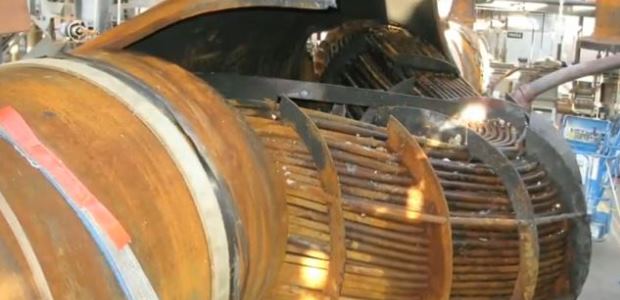
HTHA Cited as 2017 Emerging Risk
Risk experts cited it along with terrorism, cyberattacks, vulnerabilities brought on by the Internet of Things (IoT), and more in the Willis Towers Watson Wire's outlook, "What Risks Will Emerge in 2017?"
Climate change, terrorism, cyberattacks, vulnerabilities brought on by the Internet of Things (IoT) -– all of these are mentioned by risk experts in the Willis Towers Watson Wire's "What Risks Will Emerge in 2017?" post on Jan. 30. The most surprising item to be included may have been the Tesoro Anacortes Refinery heat exchanger explosion in April 2010 in Anacortes, Wash., which the U.S. Chemical Safety Board investigated, dedicating its final report issued four years later to the seven Tesoro workers – a shift supervisor and six operators – killed by it. The cause was a heat exchanger failure in the Catalytic Reformer/Naphtha Hydrotreater unit; it ruptured because of High Temperature Hydrogen Attack (HTHA) during a startup activity following cleaning.
The experts' introduction says their outlook on emerging risks "reveals two clear touchpoints: people and politics – and especially politics," adding, "The trends toward populism, protectionism and deregulation could change the risk profiles for many industries."
Robin Somerville, London-based communications director for Willis Towers Watson's Natural Resources Group, wrote the item on HTHA, which he describes as "giving some refinery owners cause for concern going into 2017."
CSB's final report on the Anacortes disaster defines HTHA as a damage mechanism that results in fissures and cracking and occurs when carbon steel equipment is exposed to hydrogen at high temperatures and pressures. The heat exchanger that exploded was filled with hydrogen and naphtha at more than 500 degrees Fahrenheit at the time, and because the autoignition temperature (the temperature at which it will ignite spontaneously on contact with oxygen) in Tesoro's Material Safety Data Sheet for naphtha listed its autoignition temperature as 437º F, "autoignition was likely," the report says.
Because that refinery had a "long history of frequent leaks and occasional fires during this startup activity," the safety board said in the report that it considers that work to be hazardous and non-routine.
Jason Christman, Honeywell's cyber security chief, also discussed the Industrial Internet of Things' evolving security in a Jan. 27 post on the company's website.